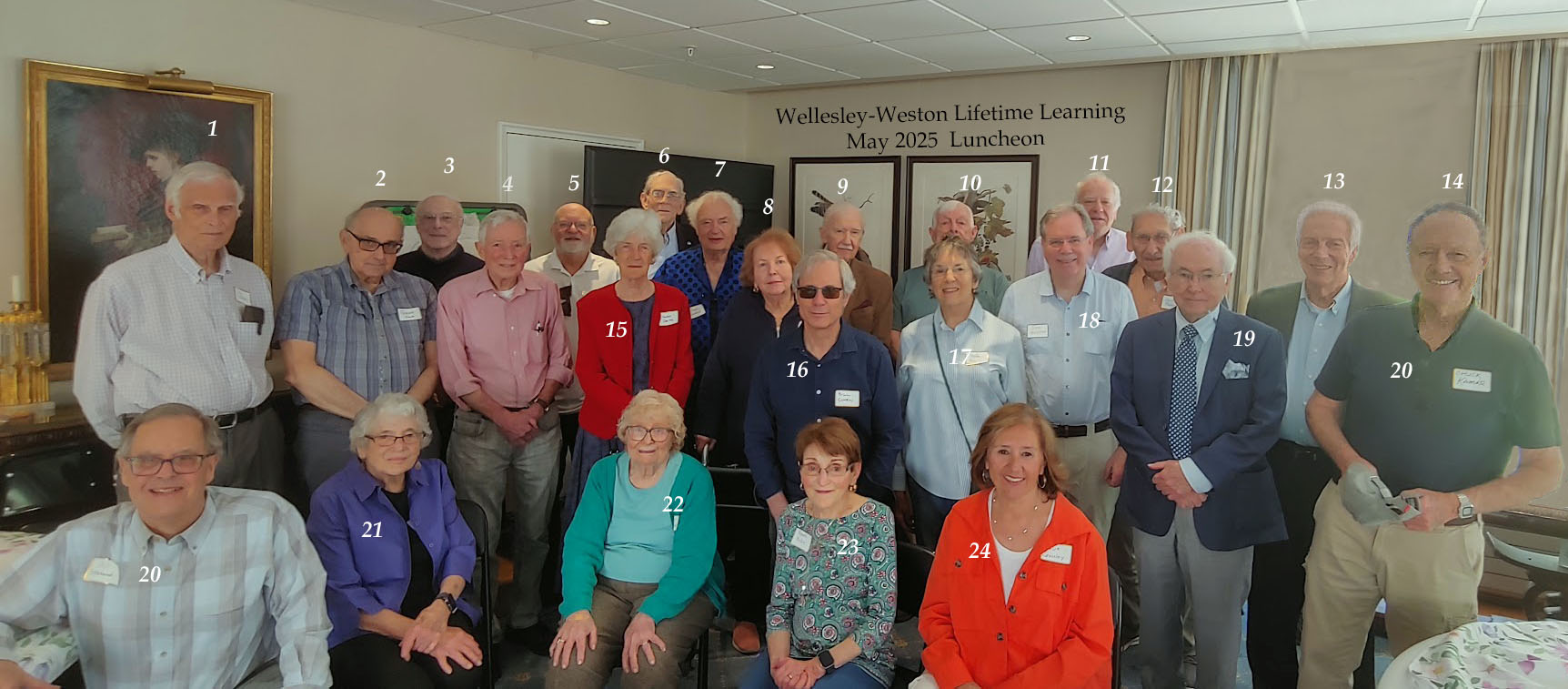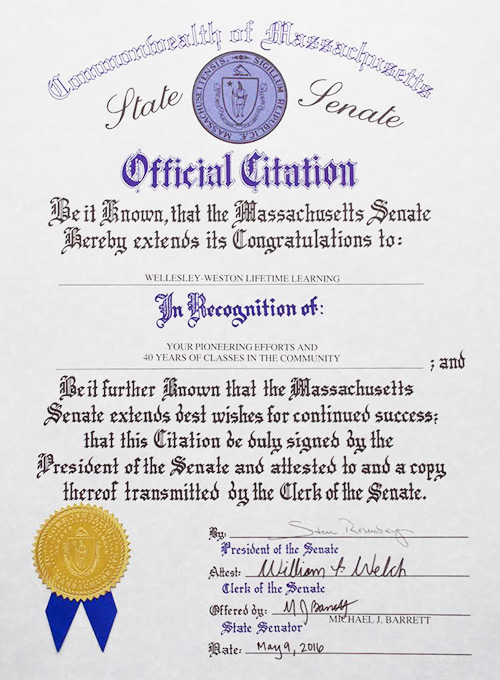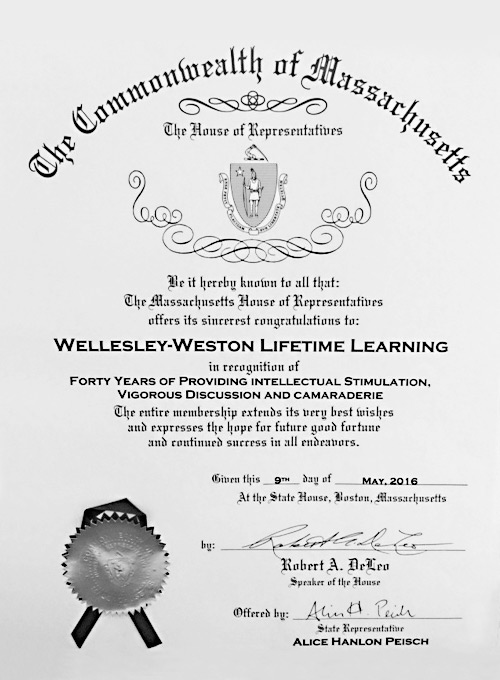Many changes occurred in the 20th century for the American people, including dramatically increased life spans, increased levels of education, and increased economic security in retirement from Social Security and other pension plans. A new class of citizens arose: educated retirees with health, time, and economic means.
Lifetime Learning (LL) organizations evolved to respond to the intellectual interests of this new class of seniors by offering non-credit courses. Wellesley-Weston Lifetime Learning (WWLL), formed in 1976, is one of the oldest of these organizations (and one of the few not affiliated with an institution of higher learning). WWLL is entirely staffed and run by volunteers.
WWLL is a registered 501(c)(3) non-profit organization.
WWLL: Volunteers keep us going
After 5 years of functioning via Zoom, WWLL hosted an appreciation luncheon. This celebrated our volunteer teachers, tech support, and board members. Their support is very much appreciated.

WWLL: Lifetime's Learning's Best Kept Secret
Watch our short presentation regarding the advantages of Lifetime Learning and some summary facts about WWLL. For those who wish to study the slides further we've also created a PDF version available for download. Alternatively, if you'd like to view the presentation on your desktop or mobile device that has the PowerPoint app, download the presentation and view it in your PowerPoint program or phone app.
Magazine Article Prominently Mentioning WWLL
The Winter 2023-4 issue of the Wellesley Weston Magazine (no affiliation with WWLL) published an excellent summary of educational opportunities for seniors titled "Living and Learning: Older Adults Make the Grade."WWLL is prominently mentioned. You can download a pdf copy of the article here or read an online verson of the Wellesley Weston Magazine here.
History of WWLL and the LL Movement
In May 2016, WWLL held a 40th Anniversary Celebration which featured several speakers. It was recorded and is available for viewing in two segments:
- Introductions by WWLL Directors Jill Strang and Joe Weisse, and Presentation Of Citations from the Massachusetts House and Senate by Representative Alice Peisch of Wellesley.
- History of Wellesley-Weston Lifetime Learning by WWLL President Bruce Belason. A hardcopy of the paper on which this talk is based can be obtained by clicking here.


Proclamations received in May 2016 at WWLL's 40th Anniversary Celebration from the Massachusetts House of Representatives and the Massachusetts Senate.